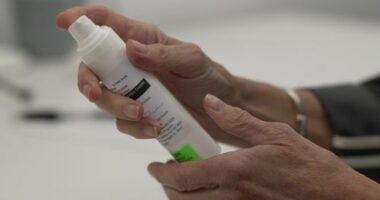Share this @internewscast.com
Welcome to The Detour: Your ultimate guide to discovering the most tantalizing flavors, secret spots, expert advice, and memorable experiences that await those who venture off the beaten path.
Until recently, Auckland was a place I’d never visited.
In fact, New Zealand itself was uncharted territory for me, despite its proximity to Sydney across the Tasman Sea. Like many Australians, I had been drawn to the allure of the South Island, with its glassy lakes, dramatic mountain ranges, and road trip possibilities.
So, it came as a surprise when Auckland became the first New Zealand city to truly captivate me.
Known as the City of Sails, Auckland boasts an array of delights: espresso bars by the water, scenic volcanic viewpoints, island vineyards, tucked-away oyster joints, and bustling late-night eateries.
The city exudes a unique blend of local charm and cosmopolitan flair—a balance that perhaps is the key to its appeal. In many ways, Auckland mirrors Sydney, complete with its own Wynyard, a Harbour Bridge, and the iconic SkyCity tower dominating the town’s skyline.
It’s no surprise that Qantas chose Auckland as the destination for the first international flight out of Adelaide in 12 years.
The new route will operate four times a week until May 2026, opening a new pathway for South Australians heading east – including those bound for New York, who can now make it in just 21 hours.

I was not prepared for Auckland to be the first New Zealand city to steal my heart

Auckland is the kind of place where you can move swiftly between worlds: waterfront espresso bars, volcanic lookout points, island wineries, hidden oyster shacks and late-night brasseries

The Shucker Brothers (pictured) is a tiny seafood bar by the ferry wharf that punches far above its size
South Australia’s Tourism Minister, Zoe Bettison MP, called the launch a milestone for the state. New Zealand is now South Australia’s fourth-largest tourism market and it’s growing rapidly, up 42 percent in the last year alone.
I was onboard that inaugural flight, and within minutes of touching down the hype made perfect sense.
Auckland is a destination that works year-round. Its mild climate makes every season appealing: long beach days in summer, winery wanders in autumn, winter festivals and spring hikes.
The dining scene is reason enough to visit (it’s one of four New Zealand cities being considered by Michelin Guide inspectors right now) and while I barely scratched the surface, three spots rose to the top:
Gilt Brasserie
Tucked inside the heritage Chancery Chambers building, Gilt is chef Josh Emett’s ode to European classics done properly. Standouts include the grilled tiger prawns soaked in nduja butter and braised beef cheeks so soft they barely need a fork. It’s polished but warm – the kind of place where locals linger well past last orders.
Daphnes Bar Taverna
Mediterranean in spirit, refined in execution. Opened by husband-and-wife duo Joost and Clare van den Berg after travels in Greece, it’s a place of shared plates, fire and roaring laughter. Get the focaccia with burnt butter, the wood-fired fish with buttermilk and pine nuts, and the lamb with buffalo yoghurt. Truly yum.

The oysters at Shucker Brothers are some of the freshest I’ve had anywhere – briny, sweet, perfect. As were the scallops (pictured)

Tucked inside the heritage Chancery Chambers building, Gilt is Josh Emett’s ode to European classics done properly
Shucker Brothers
This is a tiny seafood bar by the ferry wharf that punches far above its size. I was tipped off by a local on Waiheke Island (more on that later) and I’m glad I listened. The oysters are some of the freshest I’ve had anywhere – briny, sweet, perfect. As were the scallops – I still think about them.
A day north: Matakana and Brick Bay
An hour north of Auckland is Matakana Village, home to a much-loved Saturday market that draws loyal locals and in-the-know travellers.
I visited with Ceillhe Sperath, owner of TIME Unlimited, whose celebrity-beloved team has the rare mix of deep regional knowledge and an ability to read exactly what kind of trip you’re in the mood for.
The markets are a sensory delight: small-batch hot sauces, handmade dark chocolate from Honest Chocolat, boutique olive oils, fresh produce from nearby farms, linen, pottery, florals. It’s the type of place where you promise yourself you’ll browse, then walk out with three (or seven) bags.
A short drive away is the breathtaking Brick Bay estate where wine tasting and a long lunch at The Glass House are followed by a meander along a sculpture trail in the native forest. It’s grounding and delicious.

An hour north of Auckland is Matakana Village, home to a much-loved Saturday market that draws loyal locals and in-the-know travellers

I visited with TIME Unlimited Tours, whose guides have the rare mix of deep regional knowledge and an ability to read exactly what kind of trip you’re in the mood for


Just minutes away is the breathtaking Brick Bay where wine tasting and a long lunch at The Glass House is followed by a meander along their sculpture trail in the native forest
A world away: Waiheke Island
Then there’s Waiheke Island – just 45 minutes by ferry from Auckland city and somehow an entirely different universe – perhaps it’s to do with the fact it has its very own micro-climate.
As you arrive you’re met with vineyard hillsides sloping towards the sea, olive groves and sapphire beaches brimming with sea and birdlife.
With the guidance of Ananda, I was able to see far more in six hours than I would have alone:
EcoZip Adventures for a sweeping (and seriously fun) aerial view of the island, gliding through treetops on three giant flying foxes before a shaded rainforest walk beneath the thousand-year-old canopies.

Then there’s Waiheke Island – just 45 minutes by ferry and somehow an entirely different universe – perhaps to do with the fact it has its very own micro-climate

As you arrive you’re met with vineyard hillsides sloping towards the sea, olive groves and sapphire beaches brimming with sea and birdlife

Onetangi Beach is the largest on the island and a popular destination for locals
Allpress Olive Groves, where I tasted estate-grown olive oil so flavour-packed and pure I snapped up several bottles (and the best herb spread I’ve ever tasted!).
Tantalus Estate, my standout, where wine-fuelled long lunches spill into the late afternoon and dishes are plated like artworks (do not skip the Ora King salmon).
Waiheke Whiskey, for playful tastings, fresh garden air, and a reminder that you don’t need to love whiskey to enjoy a great distillery.
If you only have one free day in Auckland, spend it here. If you can stretch to two or three, do it. The accommodation options are gorgeous.

Tantalus Estate was my standout (pictured)


This is where wine-fuelled long lunches spill into golden hours and dishes are plated like artworks (do not skip the Ora King salmon)


I recommend EcoZip Adventures for a sweeping aerial view of the island, gliding through treetops on giant flying foxes before a shaded rainforest walk beneath the canopies
PSA: Adelaide’s new lounge is setting the standard
Before departure from Adelaide, I visited the new Qantas Business Lounge at the airport.
I don’t usually include lounge reviews here, but this one earns it. It’s quite frankly the most beautiful I’ve seen.
It’s contemporary, calm, slick, thoughtfully designed and genuinely comfortable.
Market Kitchen serves food with personality instead of stereotypical airport neutrality and there are proper charging points, warm lighting, lush bathrooms and a stacked, moody bar.
It sets the standard for what airport lounges should feel like – considered, local and quietly luxurious.
All in all I landed in Auckland with no expectations and left totally converted with plans to return pronto.
If it’s been hovering on your travel list, move it to the top.

Before departure from Adelaide, I visited the new Qantas Business Lounge at the airport


I don’t usually include lounge reviews here, but this one earns it. It’s quite frankly the most beautiful I’ve seen

It sets the standard for what airport lounges should feel like – considered, local and quietly luxurious












